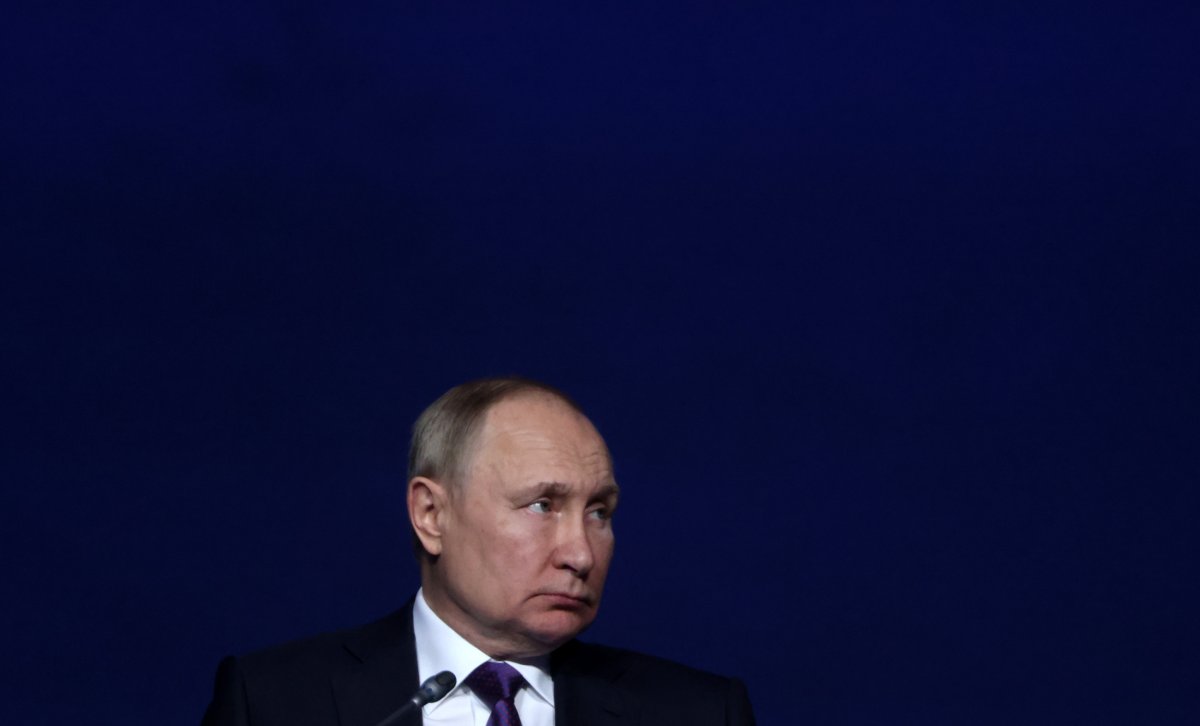A British think tank says it has obtained a four-part plan signed by Russian President Vladimir Putin outlining how the country's army would be able to overwhelm and seize military control of neighboring Ukraine within a 10-day window.
According to copies of orders issued to a range of Russian units outlined in a recent report by the Royal United Services Institute, the Russian military had plans to stun the enemy with overwhelming firepower, using an aggressive posture to force concessions from the international community to avert greater bloodshed, destabilize Ukrainian leadership, and clear the way for the Russian annexation of the country by August.
"The Russian plans for the invasion of Ukraine were detailed and offered solutions to most of the practical problems that Russia would face in occupying Ukraine," the report read. "If competently executed, these plans could have succeeded."
Obviously, things did not go as planned. Nearly 10 months after Russia's invasion of the country, a ceasefire remains elusive, while Russia has so far struggled to maintain its foothold in the country against the better-equipped Ukrainian defenses. Ukrainian political leadership remains intact. And while Russian attacks on critical infrastructure have occasionally been successful, its broader campaign has not, while the Ukrainian population has continued its active resistance against the invasion.

Russia's invasion of the country, the report read, revolved around the success of four key assumptions:
- That the invasion happens quickly, eliminating the ability of the international community to respond meaningfully.
- That Ukrainian leadership would be quickly deposed, allowing pro-Russian Ukrainians to assume positions of power under a veil of propaganda.
- That Russia would be able to seize control of the country's heating, electric (particularly nuclear power plants), and financial infrastructure, and
- That Russia—the "second most powerful army in the world," Russian General Valery Gerasimov said prior to the war's start—would dominate Ukraine on the battlefield.
All those assumptions, the report concluded, were largely based on Russian bluster. While the fundamentals of the invasion were sound—the points of entry, the size and scope of the invasion—the Kremlin, and Putin in particular, overestimated Ukrainian support for the regime, while its military units performed poorly on the battlefield, giving the international community ample time to mount a response via financial and military aid.
Also surprising: most officials did not realize they were mounting an invasion of Ukraine until it was already happening, in what the report described as an attempt to catch the country slacking.
According to the RUSI report, most Russian military personnel—even deputies under the Russian General Staff—were unaware of the intention to invade and occupy Ukraine until days before the invasion. Many tactical military units, spread thin across numerous points of entry, did not receive orders until hours before they entered Ukraine and were not properly equipped for a prolonged campaign. Per the report, many Russian soldiers arrived in towns without their weapons loaded.
"They were—for the most part—not anticipating heavy fighting," the report read.
Most important of all was the fact the Russians appeared to underestimate their quarry.
"The plan itself—while theoretically plausible—compounded optimism bias in each of its stages and, most tellingly, offered no reversionary courses of action, indicated no decision points to determine whether conventional forces should adjust their posture nor envisaged any outcome other than its own success," the report read. "Neither did the plan account for the needs of those tasked with implementing it, nor afford any agency to Ukraine."
However, RUSI analysts concluded Russia's inaccurate assessment of Ukraine's response was much less consequential than the fact that there was "no evidence in the Russian planning that anyone had asked what would occur if any of its key assumptions were wrong." By limiting the circle of planners involved in the process, Putin's assumptions of how the invasion would go went essentially unchallenged.
Notably, Russia's lack of a sophisticated surveillance system on the country left them unable to monitor troop movements or confirm successful operations against critical infrastructure like railways, or power plants, leading to the country taking a number of unnecessary risks that led to significant losses and deflated morale among their ranks.
Meanwhile, the Russian invasion's successes on the battlefield were unevenly concentrated in certain regions of eastern Ukraine like Mariupol, suggesting more competent planning could have resulted in a Russian victory. However, the length of campaigns in other places—like Donbas—allowed the introduction of combined arms like HIMARS obtained via allies that offered Ukrainian forces a much-needed advantage, and helped turn the tide of the war.
Ultimately, the report's authors chalked Russia's failures to three things: the unexpected resistance of Ukraine, the later involvement of the international community, and Russia's own incompetence.
Before the February invasion, Russia's potential adversaries, they wrote, assumed Russian forces would utilize their seemingly massive stores of fire and manpower with "a basic level of competence," in line with what they'd exhibited in smaller-scale military operations around the world in the recent decades.
But there were flaws in that assessment. RUSI analysts said there was too much focus on the quantity of equipment, rather than the quality of personnel, their leadership, training and motivations, leading countries like Britain and the United States to be reluctant to openly oppose Russian forces and laying the groundwork for invasion. Today, however, the mask is off.
"For all the new capabilities on the battlefield, the war in Ukraine has been marked by the usual miscalculations, uncertainties and human failings," the report concluded. "For Ukraine, victory is essential but can only be achieved with the ongoing support of its international partners."
Uncommon Knowledge
Newsweek is committed to challenging conventional wisdom and finding connections in the search for common ground.
Newsweek is committed to challenging conventional wisdom and finding connections in the search for common ground.
About the writer
Nick Reynolds is a senior politics reporter at Newsweek. A native of Central New York, he previously worked as a ... Read more
To read how Newsweek uses AI as a newsroom tool, Click here.








